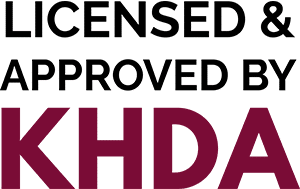
‘Better late than never’ – also indicates that starting early is still the best option!
The same applies to a young mind. In fact, a baby’s brain starts to develop as soon as it enters its six-week phase, and it continues to grow and mature through the end of pregnancy and completes finally at the age of 25.
Let’s understand why the early phase is the best to start paying attention to our brain, how to train it, and the benefits of doing so.
Why start brain training early?
The major growth of the brain takes place at the early age of childhood between 2 to 5, hence, to achieve better nourishment, understanding the brain’s functioning remains crucial. This understanding enables us in training and molds their brain in accordance – to receive the best output and performance for them.
-
This stage decides their future
A young child’s daily experience determines which brain connections will develop and which will last for a lifetime. The quality of a child’s involvement in the first few years of life – positive or negative – shapes how their brain will later improve. Brain stimulation at the age of 4 will sharpen their cortex – improving cognition and language skills.
On the contrary extreme cases of poverty, family avoidance, and a lack of access to quality early learning experiences can all hurt a child’s early brain development and, as a result, their long-term success.
-
When the brain takes its shape – it relies most on the first 4 years
As the brain matures during childhood and adolescence, brain cells in the cortex are polished and, as unnecessary cells are eliminated, the cortex gets thinner. The more cognitive stimulation a brain has at the age of four, the thinner, and therefore more developed, their cortex. The thinner their cortex, the better their language comprehension.
It almost looks like the normal developmental process either accelerates or suddenly goes further in the kids with better cognitive stimulation in their childhood.
-
The different aspects of brain training are exactly what a young mind needs
What helps the brain to grow is not only early educational exposure, but also an environment full of positivity, care, attention, and friendship. A nurturing environment can even affect brain development regardless of genes.
The benefits of brain training are countless. Better thinking, decision-making and problem-solving techniques in both elders and children are the most prominent ones. When a brain is trained to make the right choices and shaped to stay happy – we change its entire future.
Parents may not be around when their teenage children are faced with important choices about choosing peers, experimenting with drugs, engaging in relationships, or staying in education, yet parents can lay the foundations for their teenage children to make good decisions. By training their ability to retain and elaborate information, or to balance the desire for the immediate reward with the one for greater, long-term goals from a young age. Early brain training can be a gift that shall stay longer than ever imagined.
A closer look at the benefits of early brain training
Improves information retention
Some children find it tricky to take in multiple demands or information together. They get confused or their brain often stops receiving when faced with something unusually complicated.
Hence, brain training for all children especially the ones with ADHD or similar conditions can improve their ability to take in complex information and apply it in an appropriate context.
Helps discover the strengths and weaknesses earlier
They will be able to identify their strengths earlier – giving them more time to hone and harness them rather than discovering them later in their lives. Similarly, their weaknesses will be addressed proactively, without them having to struggle and look for a liberating solution.
Fixes attention problems and builds a love for education
Around the globe, many children struggle to pay attention in class or easily switch from one topic to another. Brain training can help kids to focus on tasks and shift smoothly from one activity to the next.
Not being able to focus is often expressed through a feeling of disliking the subject. A child may not hate math but instead struggles in keeping up with the class. When a child is trained to focus, they will eventually be able to find their love for studies too.
The training activities may appear that toddlers and kids are merely completing a puzzle or solving a problem, but they are training their brains to process information faster and switch their focus more rapidly.
Sharpens the memory
Some children have a comparatively low rate of learning and remembering new things, this is simply because their capacity wasn’t fully utilized. Given brain training, they can develop the proper skills to extend their short and long-term memories reaching their full potential.
When a child is encouraged to participate in such training sessions, he is allowing his brain to generate ideas and explore new learning techniques which would ease his life significantly in the future.
Our training objective
Brainnovation’s expertise in providing children with a safe and sound environment helps each child to grow and shape their brain capacity in unique ways. It also gives individual training to your young ones knowing that a human brain being socially sensitive learns the most. The human touch of our training program with a homely environment can prove to be a valuable resource for your child. We build a childhood rich with productive memories – a reserve that shall aid them a long way through their life.






